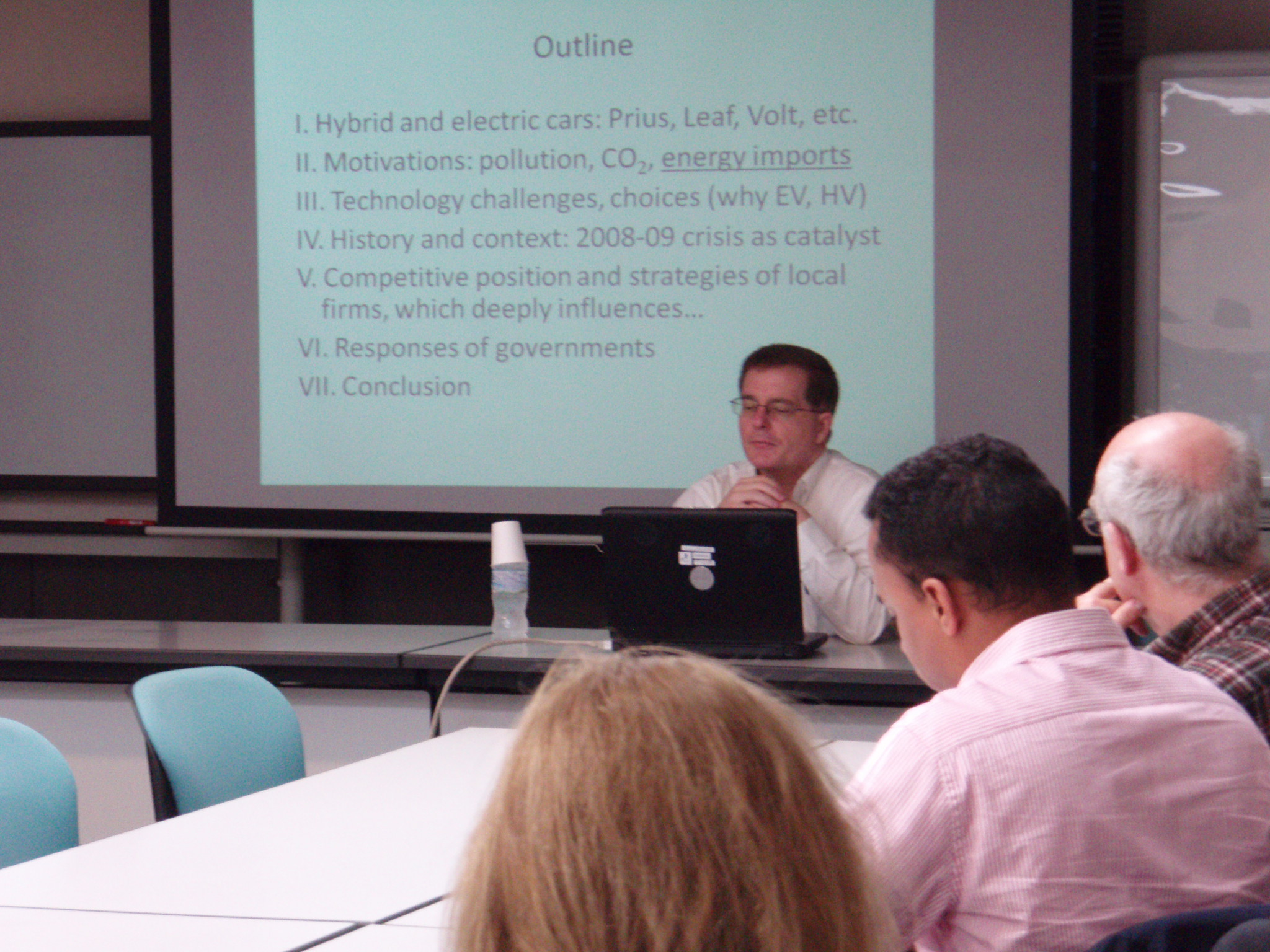Plugging in the future: Multiple policy goals and the rush to promote electric cars
April 28, 2011 6:30 PM (finished)
Gregory W. Noble
(Professor of politics and public administration at the Institute of Social Science, University of Tokyo)
| Date/Time | April 28, 2011 6:30 PM |
|---|---|
| Location | Room 549 5th floor, Akamon Sogo Kenkyuto Institute of Social Science, University of Tokyo [map] |
| Abstract | First the Toyota Prius, and now the Chevy Volt, Nissan Leaf, Ford Focus, Tesla Roadster and more—suddenly hybrid and electric vehicles are everywhere. Central and local governments offer huge subsidies for purchases of "eco-cars," and proclaim their commitment to turning local producers into global leaders of next generation vehicles. What happened—didn't globalization, liberalization and the spread of neo-liberal ideology relegate industrial policy to the dustbin of history? Have car companies captured governments? Developmentalism and rent seeking provide only partial explanations for the recent rush to promote electric vehicles. Rather, electric cars emerged as an enticing possible solution to multiple policy challenges, including energy security, reduction in pollution and greenhouse gases, technology development, and economic stabilization in the wake of the global financial crisis. Policy responses have not been totally uniform, however: variations in energy dependence and political polarization have created significant differences between North America and East Asia. |
| Bio | Gregory W. Noble is professor of politics and public administration at the University of Tokyo's Institute of Social Science. His research focuses on economic policymaking in East Asia, including an ongoing project on the development of the Asian auto industry. Publications include "The Decline of Particularism in Japanese Politics," in Journal of East Asian Studies (2010); "The Evolution of the Policymaking System," in Alisa Gaunder, ed. The Routledge Handbook of Japanese Politics (2011); and "Executioner or Disciplinarian: WTO Accession and the Chinese Auto Industry" (Business and Politics, 2005). |

